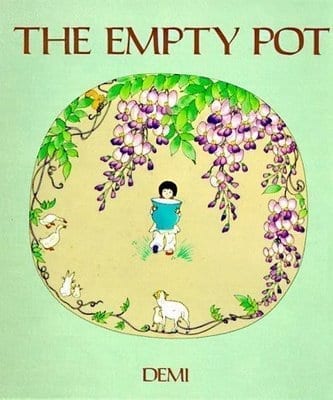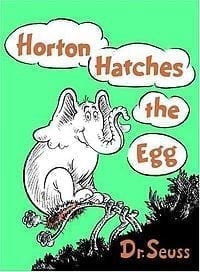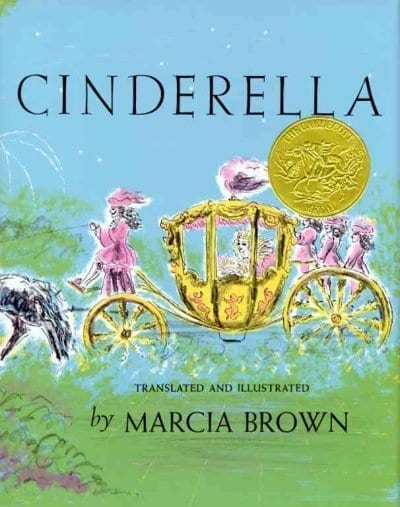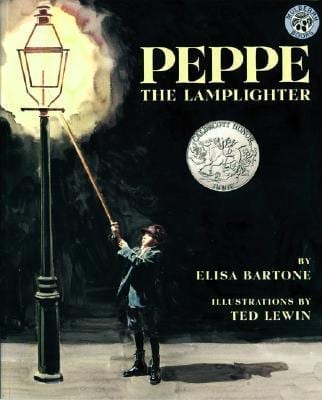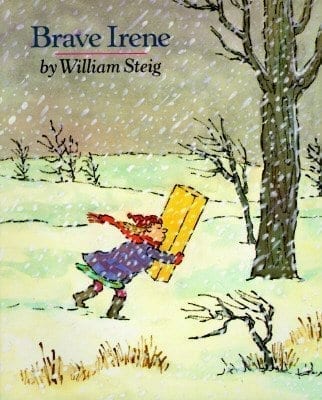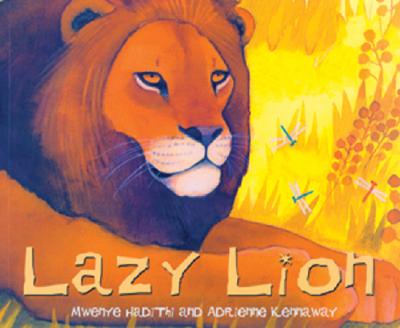“The Empty Pot” By Demi
Ping is a Chinese boy with an emerald green thumb. He can make anything grow. One day the emperor announces that he needs a successor, someone who can carry on after he is gone with the ruling of the kingdom and the growing of the flowers. He gives each child one seed, and the one who grows the best flower will take over after him. Competition is fierce, and Ping is heartbroken that nothing comes up, despite his careful tending. On the day of the competition, he is the only child with an empty pot. All the others bring lush plants. But the emperor has tricked everyone by distributing cooked seeds, unable to grow; and Ping, with his empty pot, is the only honest gardener, and therefore the winner. This is a tremendous story to illustrate the importance of honesty and the intensity of peer pressure and not wanting to appear a failure. But mostly it is a lesson on character of heart and doing the right thing even if it’s difficult.
“Rainbow Crow” By Nancy Van Laan and Beatriz Vidal
This Native American legend is a fine read-aloud because of the smooth text and songs with repetitive chants. The beautiful, colorful Rainbow Crow brings fire on a burning stick from the Great Spirit in the sky to the snow-covered woodland animals. Because of the smoke he inhales as he flies back to the woodlands, he unselfishly loses his beautiful voice. No longer is he a rainbow-colored bird, but a black crow. His sacrifices have left him with a crackly “caw” and plain black feathers. But his willingness to do what is best for everyone in spite of its difficulty has given him his freedom. Because Crow cannot sing, his feathers are black, and his meat tastes like fire and smoke, man will never hunt crow and he will always be free.
“Horton Hatches the Egg” By Dr. Seuss
This activity also applies well to “Desire, Time, and Effort.” This story opens with Mayzie, a lazy bird, sitting on her nest hatching an egg. She’s terribly bored and tired and wants a break. She persuades Horton, the elephant, to take over for her. This is a good choice on her part because, “An elephant’s faithful — one hundred percent!” So Horton props up the tree so it can take his weight, climbs up onto the nest, and ever so gently . . . sits on the egg. Mayzie decides a little vacation in Palm Beach will be in order. Once there, she says, ”Why bother?” and abandons her egg. What Horton didn’t know is that this egg needed 51 more weeks to hatch! But Horton “said what he meant and he meant what he said.” He sat on that egg, no matter what. Through a long series of misadventures, Mayzie and Horton are reunited just as the egg hatches. Mayzie wants her egg back, and Horton doesn’t agree. Then the big surprise happens and Horton gets his reward! This book contains many valuable lessons to encourage students, including patience and persistence, keeping your word, being honest, looking out for those in need, sticking through to the end, and facing your fears.
“The North Wind and the Sun” By Brian Wildsmith
The North Wind and the Sun have a competition to see who is the strongest. When the Wind blows so hard that ships sink and animals get frightened, it seems that nothing can top such strength. Unless the Sun knows something the wind doesn’t? This classic demonstrates why your brain should be your strongest muscle.
“Cinderella” By Marcia Brown
This Caldecott Medal winner is a kinder, gentler version of the old French fairy tale. The poor cinder-wench forgives her stepsisters in the end and gives them a home in her palace. This Cinderella is pretty, but not perfect, and instead of having the tiniest feet in the kingdom, she in fact has wide feet (which fit the glass slipper nonetheless). The magical transformation of Cinderella into a beautiful princess never fails to capture the imagination of young ones, and this lovely edition is sure to be a hit.
“Peppe the Lamplighter” By Elisa Bartone
Peppe, a young immigrant, lives in a tenement in Little Italy in the early 1900s. His mother is dead, his father is ill, and the boy must help support his eight sisters. The street lamplighter offers him a temporary job, and Peppe accepts with pride and excitement. His father disapproves, but the girls encourage him. Peppe imagines each light to be “a small flame of promise for the future” and makes a wish for those he loves at each lamp. His father’s continued disapproval discourages him and makes him so ashamed that one night he gives up. This night, his youngest sister does not come home because she is afraid of the dark. Peppe’s father then pleads with him to light the lamps, admitting it is an important job. This is a pleasant story about a boy’s aspirations and the values that shape character.
“Brave Irene” By Willia Steig
Mrs. Bobbin, Irene’s mother, is a dressmaker. She just finished making a beautiful dress that she must get to the duchess, who is having a party. But Mrs. Bobbin is feeling sick. She has a headache and her head is hot. So Irene volunteers to get the dress over to the duchess’s house. Mrs. Bobbin protests because it is snowing a lot outside. Irene sets out to deliver the dress to the duchess. She battles with the wind and snow, while carrying the big box containing the gown. Irene shows great dedication and love for her mom. It’s up to Irene to get out of trouble on her own, but she does so, and in a mighty plucky fashion too!
“Sally’s Room” By Mary K. Brown
Keeping a clean room is one rule that almost every child can relate to, and that most struggle with. When Sally leaves for school, her room is such a mess that it has become an inconvenience. The room doesn’t like it either. Not only do Sally’s belongings begin to lecture, but the entire room follows her to school. The embarrassed Sally rushes home, arrives ahead of her stuff, is pleasantly surprised with the useful space that greets her, and promptly reforms. The message here is rendered almost painless by the novel idea, the funny pronouncements of the furniture, and the comical details in the cartoon-style illustrations. It is a good example of “harder but worth it.”
“Lazy Lion” By Mwenye Hadithi and Adriene Kennaway
This very simple book is especially appropriate for young children. It helps illustrate the importance of taking responsibility, even when it is hard. The lazy lion, because he is the king of the beasts, orders other animals to build him a home. Each builds a home which, though suitable for them, is unfit for a lion. Because of the lion’s poor expressions of his anger and his bullying ways, this is also a good story for talking about defense mechanisms.
